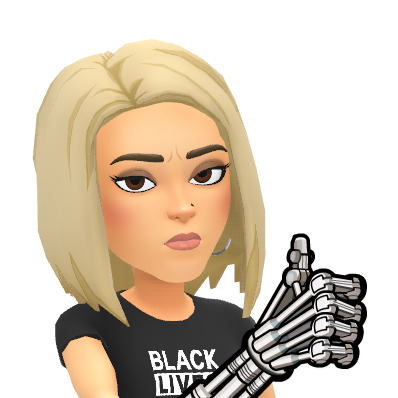
Image of Mrs. B's bitmoji with a robot hand giving a thumbs up
The conversation around AI in the mainstream has really taken off in the past year. Those in the tech world have been discussing AI far longer, and, with a partner in the tech realm, it has been a bit easier for me to adapt to the changes since I've been hearing about it for a while. It is still mind boggling how much can be done using AI and how much time can be saved, particularly when it comes to lesson planning.
This past spring, the library department in my district encouraged the librarians to create a free MagicSchool account at magicschool.ai. We have played around with the tools available, and we all seem to agree that it saves us so much time which allows us to better serve our students. Our department is working to convince the district to invest in MagicSchool Plus, either for the district, or even just to use with librarians. We will see how that shakes out, but even the free version is great.
Image of homepage for magicschool.ai
There are many tools available on the site in addition to lesson planning, including an image generator, worksheet generator, rubric generator, text leveler, quotes and jokes of the day, accommodation suggestions, help with IEPs and BIPs, and so much more!
Image of tools available at magicschool.ai
Admittedly, I have not had the opportunity to explore each area that is offered, and some will not be applicable to me in the library (for instance, I do not need to write BIPs or IEPs), but I have found the tools available to be an amazing help in the library.
When using the lesson plan tool, you can provide information to get all of the elements you require in your lesson. The more you play around with it, the more you are able to determine what information you need to include to get the lesson that works best for you. I was playing around with creating a lesson for 1st graders that explains how picture books are organized in the library.
Image of a screenshot of the lesson plan generator
With the free version, once the lesson plan is generated, you can copy and paste right into a Google Doc or wahtever format you prefer to use; the paid version allows you to export it right to your Google Drive. The lesson plan includes the objective, assessment, opening, both guided and independent practice, and the standards addressed. Once you have the framework for a lesson, you can always tweak it or add elements as needed. Sometimes I find that my prompts aren't the best and I need to go back to edit the prompt or simply add my own elements once it's in my lesson plan document. It does take some practice to get the prompts just right so that the lesson plan generates the content you are looking for. Just like anything else, this is a skill that takes practice!
A colleague of mine has used the informational texts tool to easily provide differentiated texts for her students with great success. Others have used the YouTube Video questions tool, the text rewriter, and sentence starters. I am looking forward to playing around with this more over the summer to create assessments in the way of exit tickets for my students, building my lesson plans, and creating social stories for my students, especially those in our ASD program. I'll be in an EL school(formerly expeditionary learning) next year and I'm looking forward to using this tool to create meaningful lessons that connect with the student expeditions.
Are you using AI in your lesson planning? What tools are you finding the most useful?




Comments
Post a Comment